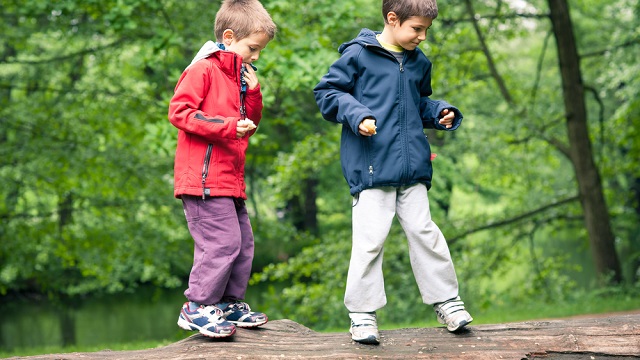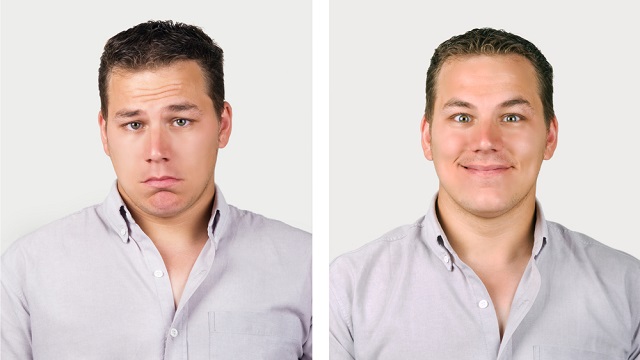Surprising Science
All Stories
Junk DNA — so called because it was thought to have no biological function — may actually play a role in determining facial shape, say scientists.
A new study is only the latest to link higher-than-average facial width to certain unsavory behaviors, including — in this case — the propensity to cheat. However, the researchers warn not to judge a book by its cover.
What started out as a personal experiment to reduce a typical human’s nutritional needs to a single drink has now grown into an actual business, thanks to US$3 million in preorders and seed funding. One goal: Improving the taste.
A team of Washington high school students has developed an easy-to-install lock that teachers could quickly place on a door in case of an intruder emergency. They have received a grant to help them develop the product further.
A study of 5,000 UK schoolchildren found that improvements in academic performance accompanied an increase in the number of minutes spent in intensive exercise. Girls in particular were shown to do better in science.
Results of a study encompassing three decades of relationships reveal that having a divorced friend or acquaintance increased the likelihood of a person’s own marriage ending. It’s the first to examine how one’s social network can affect romantic relationships.
Found by the Hubble Space Telescope, it’s the farthest galaxy located to date, and is giving astronomers one of the earliest glimpses of what the universe was like after the Big Bang.
Australian researchers have discovered particles of gold in the leaves of eucalyptus trees, and speculate that they’re coming up from larger deposits underground.
In a few months, World View will offer tickets for balloon rides that will take passengers to an altitude of about 100,000 feet. It’s not high enough to experience microgravity, but they promise an awesome view.
“Rapid urbanization is the fastest, most intense social phenomenon that ever happened to humankind, perhaps to biology on Earth. I think we can now start to understand in new and […]
Happify provides a range of tools that use positive psychology techniques to help participants improve on qualities commonly associated with happiness, such as resilience and compassion.
Wichita State University is one of a growing number of higher-education institutions that are using predictive analysis tools to help them determine how well incoming students will do.
UCLA researcher Steve Horvath has come up with a way to measure the biological — rather than chronological — age of human organs, tissues and cells. His findings could lead to new ways to slow or even stop aging.
The current issue of American Psychologist challenges scientists to focus on a largely unexamined area of study.
A study combining regional political, social, economic and health data with responses from various personality surveys showed that parts of the US can indeed be said to have distinct temperaments.
A survey of UK residents revealed that those who claimed to meet the minimum recommended amount of weekly exercise tended to be heavier if they stated that part of that exercise included housework.
University of Rochester scientists discovered that during sleep, the space between brain cells widens, allowing additional cerebrospinal fluid to flush out toxic molecules. Some of these have been linked to neurodegenerative diseases.
A protein used by the liver to metabolize belly fat is also used by the brain’s memory center. More belly fat increases the chances that the liver will steal some protein from the brain in order to do its job.
New research suggests that people are largely biologically programmed to wake up and fall asleep at certain times. Those with “late” programming tend to struggle more with traditional work schedules, and can experience health problems as well.
A small-scale experiment involving female university students revealed that the presence of music, regardless of its speed, appeared to reduce alcohol’s mellowing effects, leading to faster consumption.
Together, the fleet of drones spent all of six hours taking over 2,000 high-resolution photos, which were then assembled into a 300-million-point 3D model.
A three-year project conducted by the Royal Society for the Protection of Birds found that only one in five kids had a “realistic and achievable” connection with nature. Unsurprisingly, adults’ attitudes may be to blame.
A network of probes that communicate with each other using the power of the stars isn’t within the reach of current technology, but it could be someday, according to a new paper.
University of Tokyo researcher Huai-Chien Chang says that a missile outfitted with supplies and programmed to land softly could provide help within an hour.
Two Newcastle University researchers have developed a canine version of a device that tracks its wearer’s behaviors. They theorize that changes in those behaviors could indicate a problem at home with the dog’s owner.
Researcher Saif Mohammad’s data mining tool analyzes emails for eight different emotions, including joy, trust, and anger. Next up: A Gmail app that could help improve online communication.
Brigham Young researchers say their findings prove the value of social media as a possible tool in suicide prevention.
Particularly for people who are new to wine, the design of the label can affect both the bottle’s ability to attract attention and the perceived flavor.
Not exactly, say the authors of a new study. However, they have identified a certain gene variation that causes people to notice the negative more quickly while also experiencing emotional events more vividly.
Philadelphia Children’s Hospital is the first in the nation to remove supplements such as echinacea and coenzyme Q10 from its list of approved medications. One reason given is that they may cause harmful interactions with other drugs.





























